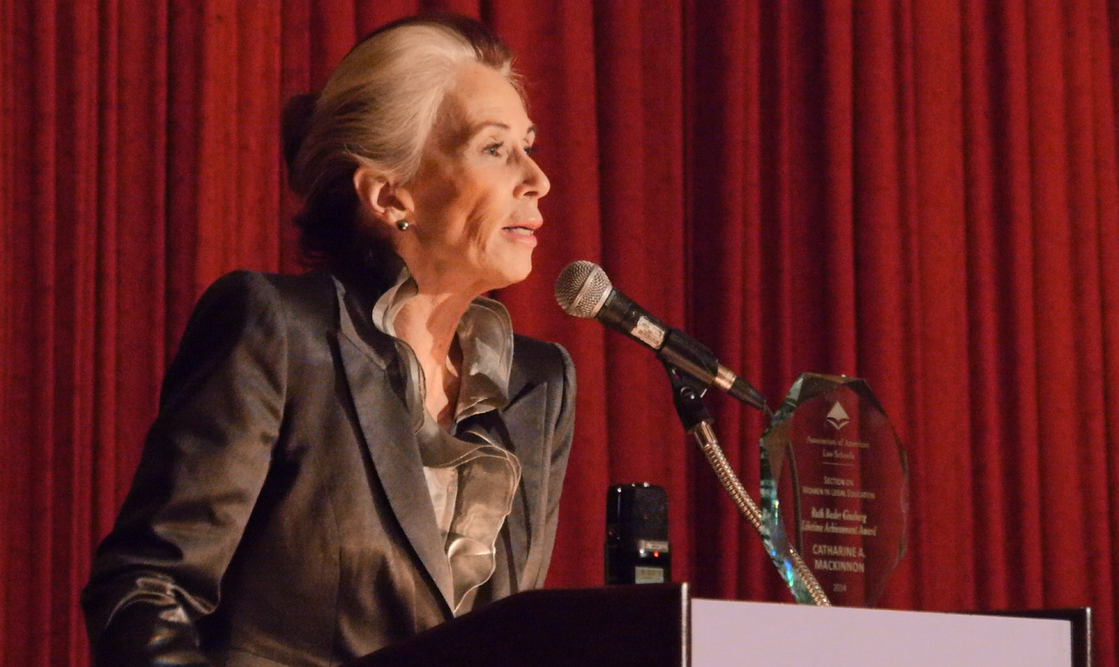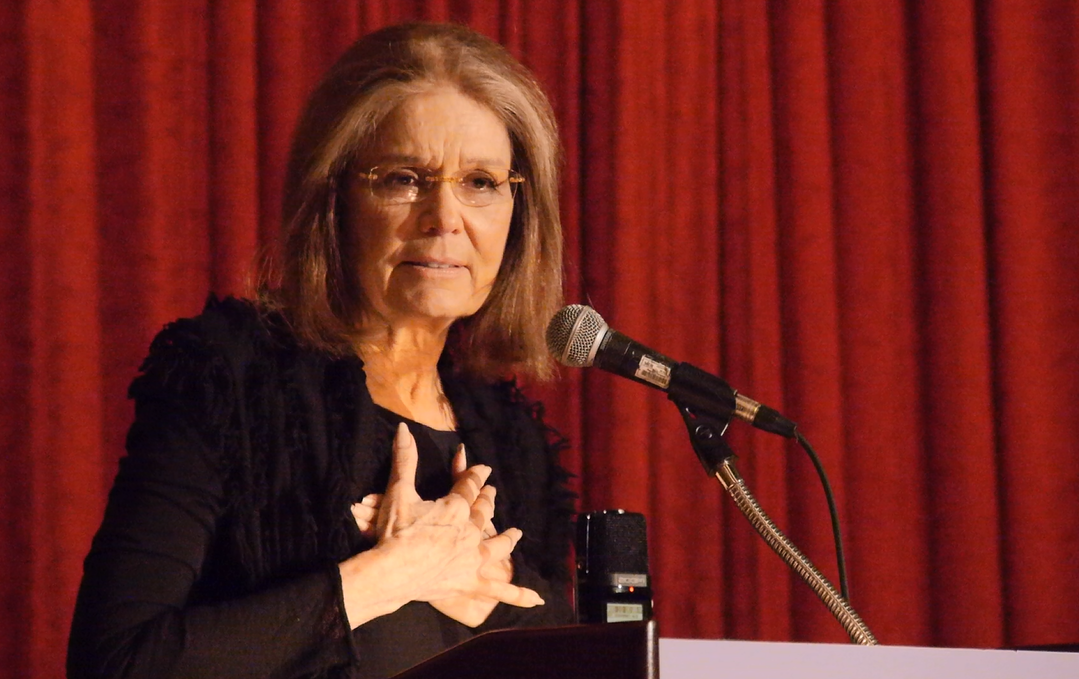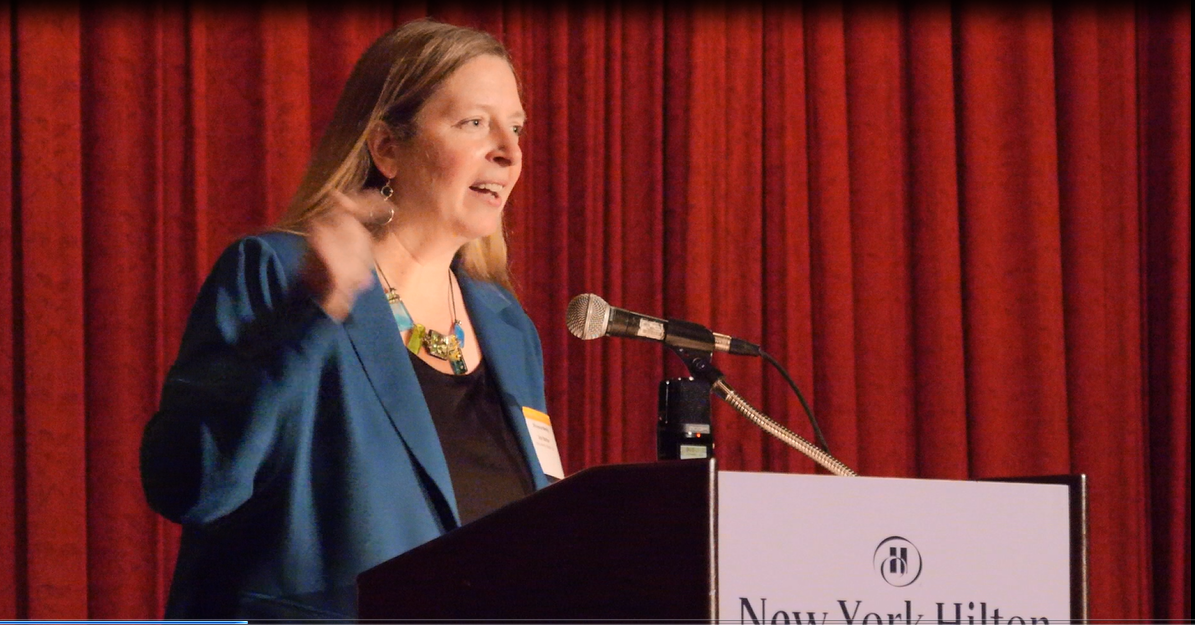Today the Center for Gender and Sexuality Law will launch it’s Public Rights/Private Conscience Project – a new think-tank created to reconceptualize and reset the intractable standoff between religious liberty and equality/sexual liberty. The Project is funded with substantial grants from the Ford and Arcus Foundations, and we have hired Kara Loewentheil to direct the Project.
Copied below is the press release announcing the new project.
Best,
Katherine
—————————————-
Katherine Franke
Isidor and Seville Sulzbacher Professor of Law
Director, Center for Gender & Sexuality Law
Columbia Law School
435 W. 116th Street
New York, NY 10027
212.854.0061
212.854.7946 (fax)
CGSL Blog
find us on Facebook
follow us on Twitter
Columbia Law School Launches New Project on Religious Exemptions and Civil Rights
Katherine Franke, Director of the Center for Gender and Sexuality Law, Creates Public Rights/Private Conscience Project, a New Think-Tank Designed to Reset the Conflict Between Sex Equality, Reproductive Rights, and Religious Liberty
Media Contact: Public Affairs, 212-854-2650 or publicaffairs@law.columbia.edu
New York, March 24, 2014—Katherine Franke, director of Columbia Law School’s Center for Gender and Sexuality Law, announced today the launch of the Public Rights/Private Conscience project, a new think-tank created to address the increased use of religion-based exemptions from compliance with federal and state laws securing equality and sexual liberty.
The scope of religious exemptions will feature prominently at the U.S. Supreme Court today, March 25, when owners of the craft store chain Hobby Lobby and furniture manufacturer Conestoga Wood argue that their religious beliefs justify an exemption from the Affordable Care Act’s requirement that employers include contraception coverage in their employee health plans. The cases are Sebelius v. Hobby Lobby Stores, Inc. and Conestoga Wood Specialties Corp. v. Sebelius.
With increasing frequency, opponents of same-sex marriage, reproductive rights, and gender equality have sought a safe harbor in religion to justify otherwise illegal employment and business practices. Arizona Governor Jan Brewer recently vetoed a bill that critics argued would allow businesses to discriminate against gays and lesbians if the discrimination were attributed to religious beliefs. Similar bills are making their way through other state legislatures.
“With greater and greater frequency, respecting equality rights is seen as optional while respecting religious liberty is mandatory,” Franke said. “The Public Rights/Private Conscience project will bring the considerable academic resources of Columbia University to bear on rethinking this intractable standoff between religious liberty and other rights.”
Read more about the project in this ProPublica Q&A with Franke.
The Public Rights/Private Conscience project will:
· map the arguments being made in the religious exemptions context in court cases, academic scholarship, policy papers, and the media;
· mobilize scholars, lawyers, and advocates in an effort to reframe the debate so that compliance with civil rights norms is seen as compatible with faith-based doctrines;
· develop model language that can be included in proposed legislation that strikes the constitutionally required balance between religious liberty and other fundamental constitutional rights;
· develop best practices to address entities or individuals that refuse service on the basis of religion;
The project will be directed by Kara Loewentheil, currently a postdoctoral associate-in-law and fellow in the Program for the Study of Reproductive Justice at the Information Society Project at Yale Law School. Loewentheil previously served as a Blackmun Legal Fellow at the Center for Reproductive Rights and as a clerk for the Honorable James L. Dennis on the U.S. Court of Appeals for the Fifth Circuit.
“The project is uniquely positioned to develop new theoretical frameworks for understanding the role and impact of religious exemptions on liberty and equality rights in a modern multi-cultural society,” said Loewentheil, who will be joining Columbia Law School as a research fellow in addition to her role as director of the Public Rights/Private Conscience Project. “Our goal is to promote innovative framings of these questions in policy, advocacy, scholarship, and litigation.”
The Public Rights/Private Conscience Project is funded by grants from the the Ford Foundation, which aims to strengthen democratic values, reduce poverty and injustice, promote international cooperation, and advance human achievement, and the Arcus Foundation, a leading global foundation advancing pressing social justice and conservation issues.
Franke is available for interviews about the launch of the Public Rights/Private Conscience project and about the religious exemptions cases in the Supreme Court. She can be reached directly at kfranke@law.columbia.edu or via the Law School’s Public Affairs Office at 212-854-2650, or email publicaffairs@law.columbia.edu.
The Law School also has a studio on campus equipped with an ISDN line and IFB capability for radio and television interviews. Please contact the Public Affairs Office for bookings.
# # #
Columbia Law School, founded in 1858, stands at the forefront of legal education and of the law in a global society. Columbia Law School combines traditional strengths in corporate law and financial regulation, international and comparative law, property, contracts, constitutional law, and administrative law with pioneering work in intellectual property, digital technology, tax law and policy, national security, human rights, sexuality and gender, and environmental law.
Join us on Facebook
Follow us on Twitter: www.twitter.com/columbialaw
 Fifth Annual Colloquium on Environmental Scholarship
Fifth Annual Colloquium on Environmental Scholarship The Colloquium panels will take place on Saturday, October 4. Vermont Law School’s Environmental Law Center and its faculty will host a cocktail reception the night before in the Hanover area, and a dinner on Saturday evening at Vermont Law School. Further Colloquium details regarding the schedule, events, lodging, and transportation will be posted here as they become available. For more information on the Colloquium, or if you need assistance uploading your abstract, please contact Courtney Collins at ccollins@vermontlaw.edu or at (802) 831-1371.
The Colloquium panels will take place on Saturday, October 4. Vermont Law School’s Environmental Law Center and its faculty will host a cocktail reception the night before in the Hanover area, and a dinner on Saturday evening at Vermont Law School. Further Colloquium details regarding the schedule, events, lodging, and transportation will be posted here as they become available. For more information on the Colloquium, or if you need assistance uploading your abstract, please contact Courtney Collins at ccollins@vermontlaw.edu or at (802) 831-1371.




 Michele Gilman,
Michele Gilman,  Karyn Washington, founder of the
Karyn Washington, founder of the  In an interview with Kevin Powell over at
In an interview with Kevin Powell over at  Over on
Over on 


 2016 will mark the fortieth anniversary of the only spoken word album produced by Olivia Records, Where Would I Be Without You? Featuring the poems of Judy Grahn and Pat Parker, Where Would I Be Without You? introduced Grahn and Parker to a wide array of women making the two beloved poet/troubadours during the 1970s. While both enjoyed enormous popularity, scholarly treatments of their work and its lasting significance have been sparse. This special issue of *The Journal of Lesbian Studies* will continue to redress the lack of critical engagement with these two important and iconic lesbian-feminist poets.
2016 will mark the fortieth anniversary of the only spoken word album produced by Olivia Records, Where Would I Be Without You? Featuring the poems of Judy Grahn and Pat Parker, Where Would I Be Without You? introduced Grahn and Parker to a wide array of women making the two beloved poet/troubadours during the 1970s. While both enjoyed enormous popularity, scholarly treatments of their work and its lasting significance have been sparse. This special issue of *The Journal of Lesbian Studies* will continue to redress the lack of critical engagement with these two important and iconic lesbian-feminist poets. Did you ever want to know
Did you ever want to know